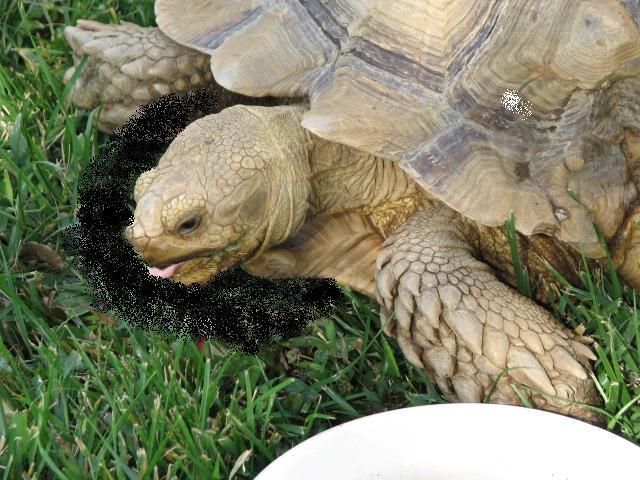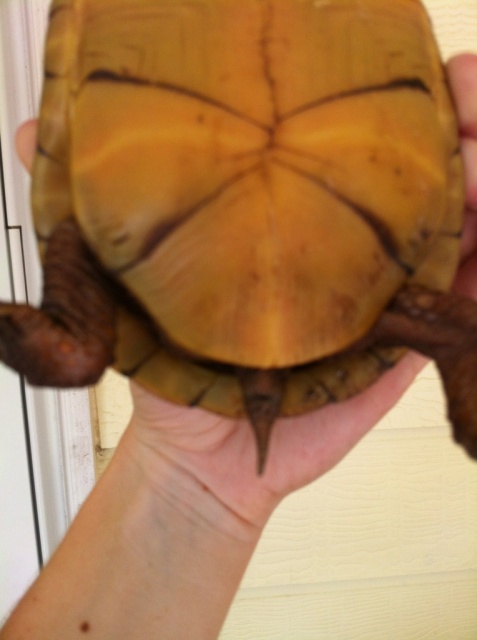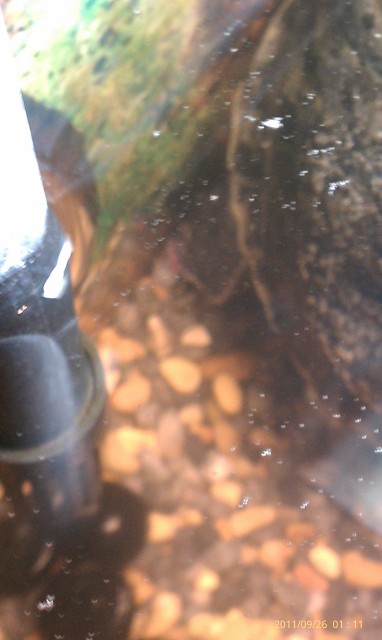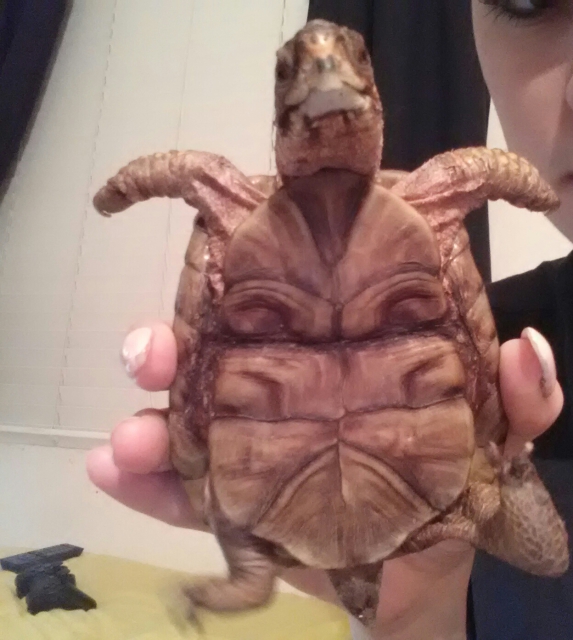QuestionHello!
I recently came into possession of an Ornate Box turtle. I have cared for turtles before, but they have all been water turtles (red-eared sliders, snappers, etc). So I'm not too sure what I'm doing now that I have a land turtle.
So far, our turtle has been doing well on a diet of canned cat food. However, we feel that it should maybe be eating other things besides just cat food? We have tried apples, bananas, carrot pieces, celery pieces, and other various fruits and vegetables, but our turtle won't touch anything besides her daily canned cat food. She will actually push the other stuff off the food dish, and just eat the cat food.
Is this healthy for her? Does she need any other suppliment besides cat food? I can't help but think that isn't giving her the proper nutrition she needs as a turtle, but all my prior turtles were water turtles and were completely happy with reptomin pellets (which won't work so well with a land turtle LOL).
Thanks for any advice or help you have on the subject!
AnswerThank you for the question.
I'd bet you've already done some researchand have heard most of this already, but...
1. Ornate box turltes (Terrapena ornata) are the most difficult of the three common pet box turtles to take care of. Even though they come from very rugged territory that experiences all kinds of weather 9which usually means easier to care for in captivity), they are often finicy eaters and often do not thrive in captivity.
2. Ornates, more so than most other box turtle species, are insectivores. Their wild diet is something like 80% worms, bugs, insects, small arthropods, snails, etc. and 20% vegetations- usually tough grasses, flowers, berries, fungi, etc. The coarseness and toughness of the diet seems to help keep their beaks from overgrowing, keeps them from too much weight gain, and keeps the digestive system healthy.
3. Most captive turtles will grow up preferring what they were started on. I don't know where you got this one, but if it is used to canned cat food it might be hard to switch it over.
Canned Cat Food: This is NOT the worst diet option, but we can make it better and healthier for the turtle. It DOES have the benefit of being convenient, cheap, and easy to store. Just be sure to use a decent brand and a low-fat variety.
Over the next few weeks, try mixing it with other things to provide variety and better nutrition- just add a little at first, then inccrease the levels slowly over a few weeks.
Try adding:
- Powdered vitamins. Reptile vitamins with B13 are best, but good quality bird or puppy powder will work. SOME turles really seem to hate the taste of liquid vitamins but you can try these as well.
- Chopped alfalfa hay, clean young dandelion leaves, carrot or parsely greens, etc. (At most, keep this only about 20% of the total food.)
- Pieces of cooked chicken or other non-beef or pork meats (with the exception of organ meat if you have any). Not much of this either- the goal with this is to wean it off the fattier and greeasier cat food a bit.
- Purinia trout chow (available in most pet stores). This is a nice alternative, and helps make most food mixes a bit healthier and more balanced. Mash it up a bit if needed to get it to start eating it.
Other Foods: Besides the 'enhanced' cat food, try offering...
- Crickets. Don't buy too many at once in case it won't eat them, but most box turtles LOVE them!
- Land snails. These can be hard to get, but they are also rather easy to breed if you are interested. Again, most box turtles love them and they are very nutritious for turtles. (Note- if the wild-collected snails may have eaten snail baits, do NOT use them as food!)
- Garden bugs. If possible, consider letting the turtle wander outside in a nice, bug-filled location. Worms are good as well!
- Occasional bananas, strawberries, etc.
- Some table scraps. People have reported boxies eating everything from mashed potatoes ot peanut butter sandwiches! They are opportunisitic scavengers in the wild, and sometimes it is good ot give them options. Not much is 'bad' for them in small amounts.
Schedule:
Most turtles overeat massively given a chance. Boxies should be given a big meal once a week, a couple small meals a week, and have a fasting day a week. Most of them eat most in the morning, or when it is getting ready to rain.
For more information, and some GREAT links, try www.tortoise.org. There is a TON of box turtle info on the net!

 flakey substance on turtles neck and legs
Question
Red ear slider
red ear slider about 9 mos. 20
flakey substance on turtles neck and legs
Question
Red ear slider
red ear slider about 9 mos. 20
 African Succata has Acrylic Paint on back
Question
Tim
Please help! Acrylic Paint on Tim the Turt
African Succata has Acrylic Paint on back
Question
Tim
Please help! Acrylic Paint on Tim the Turt
 male or female box turtle?
Question
box turtle
Is this a male or female box
male or female box turtle?
Question
box turtle
Is this a male or female box
 red ear slider injury
Question
ouch
I found the turtle about 2 years a
red ear slider injury
Question
ouch
I found the turtle about 2 years a
 What kind of turtle I have
Question
Honey 1 Honey 2
Hi, I have had th
What kind of turtle I have
Question
Honey 1 Honey 2
Hi, I have had th